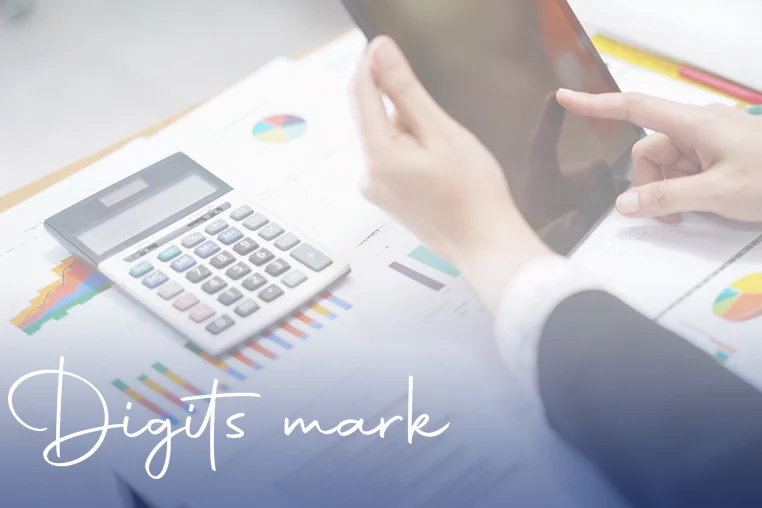Introduction
The process of collecting information about a proposed project and then analyzing it to find out the feasibility of its implementation, reduce risks and profitability of the project. Therefore, it is necessary to know the extent of the success or loss of this project compared to the local market and its needs, and then to expect the companies’ ability to remain as a profitable business during a specified period of time, all of this reflects the economic feasibility study
Good preparation for economic feasibility is one of the most important steps for the success of projects. The success and effectiveness of projects depends primarily on proper planning. Accurate planning is the main pillar on which the expected financial return from the project depends.
In order to determine the economic feasibility, we need to conduct two analytical studies, namely: strategic analysis and financial analysis
Strategic analysis of business projects helps us understand the competitive scope of a company. It focuses on the industry in which the company operates and on the company itself
Financial analysis helps us to know the performance of the company in reality. There are two parts to the financial analysis: the statement of operations and the balance sheet. We note that the statement of operations tells us the amount of money or loss incurred by the company based on current costs and sales. The balance sheet tells us the amount of assets the company has in order to support its current and future operations, which provides a snapshot of the company's assets and short-term debts on a particular date
Table of contents
What is the feasibility study process and what are its types
The importance of an economic feasibility study
What are the objectives of the economic feasibility study
What are the foundations that must be taken into account when conducting an economic feasibility study
What are the steps required to conduct an economic feasibility study
What are the main benefits of conducting a feasibility study
What is the feasibility study process and what are its types
There are several definitions for which the economic feasibility study is defined, as it can be defined as: “a scientific tool used to rationalize new investment decisions or to evaluate previously taken decisions, or to make a comparison between the available alternatives on technical and financial bases and in the light of specific data related to the project site, operating costs, operating energies, revenues, the type of technology used and the labor force employed
It can also be defined as “a set of tests and estimates that are prepared with the intention of judging the viability of the proposed investment project, or the investment decision, in light of the expectations of direct and indirect costs and benefits, throughout the life of the project.”
It can be said that in this study, the financial capacity of the project is analyzed and measured, and the probability of its continuation successfully, including all the factors that can affect it, such as: economic, technological, and legal factors
On the other hand, the economic feasibility study is used to determine the potential positive and negative results of the project before investing it, emphasizing potential problems, and determining whether the project idea is a good idea or not after looking at all the important factors
As for its types, they are represented by
Technical feasibility
This evaluation focuses on the technical resources available to the organization. It helps organizations determine whether technical resources meet capabilities and whether the technical team is able to turn ideas into business systems. Technical feasibility also includes evaluation of the hardware, software, and other technical requirements of the proposed system
Feasibility
This evaluation typically includes a cost/benefit analysis of the project, which helps organizations determine the feasibility, cost, and benefits associated with the project before allocating financial resources. It also serves as an independent evaluation of the project and enhances the credibility of the project - helping decision makers to determine the positive economic benefits to the organization that the proposed project will provide
Legal feasibility
This assessment checks whether any aspect of the proposed project conflicts with legal requirements such as zoning laws, data protection laws, or social media laws. Suppose an organization wants to construct a new office building in a specific location. A feasibility study may reveal that the ideal location for the organization is not intended for this type of business. This organization has saved significant time and effort by knowing that their project was not possible from the start
operational feasibility
This assessment involves carrying out a study to analyze and determine whether - and to what extent - the needs of the organization can be met by completing the project. Operational feasibility studies also examine how the project plan meets the requirements identified in the requirements analysis stage of system development
feasibility scheduling
This evaluation is most important to the success of the project; After all, the project will fail if it is not completed on time. In feasibility scheduling, the organization estimates the amount of time the project will take to complete
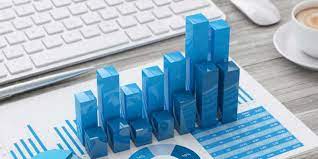
The importance of an economic feasibility study
The importance of the economic feasibility study involves its importance to the individual investor, its importance to the project, and its importance to societyFor the individual investor
Shows the extent of new investment opportunities that need more detailed study
Enable the investor to choose between the available investment opportunities, and how to arrange them
The results of the economic feasibility study guide the investor, so that he can refer to it at any stage of the implementation process
for the project
The importance of the feasibility study lies in the decision-making process associated with the establishment of the project, such as: buying real estate, erecting buildings, and supplying machinery
Shows the project's ability to achieve its objectives
Contributes to identifying the funding sources needed for the project
for the community
Contribute to solving the problem of relative scarcity of resources, and meeting the growing needs of society
Overcoming failed projects by paying attention to the details and accuracy of the feasibility study report, thus bypassing the waste of money
Contribute to providing a level of security for the invested funds
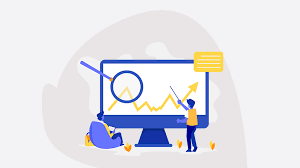
What are the objectives of the economic feasibility study
The economic feasibility study aims in general to determine the possibility of investing in the project or not, and there are several sub-objectives of the economic feasibility study,You may be interested in learning about the necessary skills in e-marketing
they are Determine the available or alternative investment opportunities
The economics of the feasibility study should be taken into account, so there should be no extravagance in this regard
Determines the economic and reciprocal effects of investment proposals, both domestically and internationally
Determines the availability of expansion plans for existing products
Deepening the understanding of the basic terminology of the project, both from an economic and other technological, technical, and financial aspects
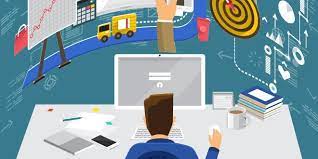
What are the foundations that must be taken into account when conducting an economic feasibility study?
Determine the experiences, motives and personal qualities of the project manager, to ensure that he is able to manage the project successfully ,You may be interested in looking at the marketing funnel, is it one of the most important secrets of e-marketing.
The volume of potential customers for the goods or services to be offered to the market by the project under study
Determining the type of market, is it a consumer market, a market for industrial goods, a market for new goods, consumer goods, or local goods? Is it a local market or a foreign market? What is the market share of the new product?
Study the technical feasibility of the project, in terms of fixed assets, requirements and stages of production of the commodity
Define different market characteristics
Determine the factors affecting the demand for the project's products
Determine the degree of competition in the market and make estimates of the number of competitors and the size of the supply of similar products
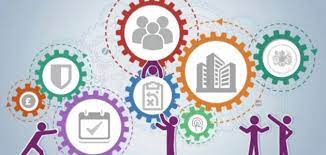
What are the necessary steps for conducting an economic feasibility study
Choosing the commodity or product to be produced from the proposed project, and this is done through thinking and surveying about the appropriate project idea, analyzing and verifying it, and then we decide which project should be studied and its economic feasibility worked ,You may be interested to see what is referral marketing and what are its features.
Knowing whether people will buy the commodity or not, this is done by identifying the needs and demand of potential or real customers and studying whether people will buy what we plan to produce and sell in the potential market
Determining how the project will operate, as there must be an informed decision on how to operate the project and a full study of how it works
Estimating the income received from the project, i.e. from sales, by estimating the quantity expected to be produced during a certain period of time and its expected price upon sale, and thus anticipating the profit returning from the project
Making a decision is the idea of the project good or not, it must be ensured that the idea of the project is useful or not, by answering some questions such as
What is the profit of the project
How to calculate profits and cash flow
What are the other benefits of the project
The development of a detailed feasibility study for the project, including the economic feasibility study for the project, is not considered a luxury as much as it is a necessity to determine the goal of establishing and implementing the project, as well as its success and continuity thereafter. To study the feasibility, and finally the executive feasibility study is a sales tool for the new product

What are the main benefits of conducting a feasibility study
Here are some of the key benefits of conducting a feasibility study that improves the focus of project teams
Identifies new opportunities,You may be interested to see what is a successful product and how to market it.
Provides valuable information for making a "go/don't go" decision
Narrows alternatives to work
Identifies a good reason for undertaking the project
Enhances success rate by evaluating multiple parameters
Helps to decide on the project
Identifies reasons for not following up
Conclusion
If you want to use any of the professional e-marketing and social media advertising companies, you can contact the digitsmark team
Where we offer you a group of specialists in professional web design services, social media services and many diverse digital marketing services
Hurry up to contact us through our various digital platforms, or visit the digitsmark website on the Internet
Articles you may be interested in reading on our blog
E-Marketing Comprehensive Guide
Building Marketing Strategies
Content Marketing
A set of marketing steps necessary for entrepreneurs
Search Engine Marketing


